|
|
||||||||||||||||||||||||
|
||||||||||||||||||||||||
|
Privacy Policy | Editorial Policy | Profit Policy | Join the Association | List of Members | Contact us | Index | Links |
||||||||||||||||||||||||
|
Back Go to page: 1 2 3 4 5 6 7 8 9 10 11 12 13 14 15 16 17 18 19 20 Forward
|
||||||||||||||||||||||||
|
Health and Life Style. |
||||||||||||||||||||||||
| Veterans and Veterans Families Counselling Service (VVCS) can be reached 24 hours a day across Australia for crisis support and free and confidential counselling. Phone 1800 011 046. VVCS is a service founded by Vietnam Veterans. |
||||||||||||||||||||||||
|
Exercise for weight loss: Calories burned in 1 hour.
Being active can help you lose weight and keep it off. Find out how much you need.
Being active is important for any weight-loss or weight-maintenance program. When you're active, your body uses more energy (calories). And when you burn more calories than you consume, you lose weight.
To lose weight, most people need to reduce the number of calories they consume and increase their physical activity. In general, that means that to lose 0.7 kilograms a week, you need to reduce your daily calories by 500 to 750 calories. There are other factors that can influence this equation. Because of changes that occur in the body over time, you might need to decrease calories further to continue losing weight or maintaining it.
Diet or exercise: Is one better than the other?
Both are important. Diet has a stronger effect on weight loss than physical activity does; physical activity, including exercise, has a stronger effect in preventing weight regain after weight loss.
Weight loss through diet without physical activity, especially in older people, can increase frailty because of age-related losses in bone density and muscle mass. Adding aerobic and resistance training to a weight-loss program helps counter the loss of bone and muscle. For most healthy adults, the US Department of Health and Human Services recommends these exercise guidelines:
Moderate aerobic exercise includes activities such as brisk walking, swimming and ballroom dancing. Vigorous aerobic exercise includes activities such as running and aerobic dancing. Strength training can include use of weight machines, or activities such as carrying groceries or heavy gardening.
As a general goal, aim for at least 30 minutes of physical activity every day.
How much am I burning?
This list below shows the estimated number of calories burned while doing various exercises for one hour. This gives an idea of the relative calorie burn of various activities for a person who weighs 75 kilograms. Specific calorie expenditures vary widely depending on the exercise, intensity level and individual characteristics such as weight.
|
||||||||||||||||||||||||
|
||||||||||||||||||||||||
|
A tomato family is walking down the road, baby tomato falls behind, daddy tomato goes back and smacks him on the head and says: "Ketchup!" Sorry
|
||||||||||||||||||||||||
|
The birthing business.
This
is a subject that girls just know about and about which blokes have
absolutely no idea. Birthing – it is one of the most natural things
on this planet,
We call the female of the species the “weaker sex” but believe me, if men had to do the birthing bit, the human race would have died out not long after Adam and Eve hit the park. How do they do it, they have to put up with that uncomfortable construction phase for 9 months, with its ever expansion process, knowing full well that at the end will come those terrible hours and hours of torture. Yet, most are not content with enduring the whole process once, they back up and do it all again and in some instances, again and again.
We think we’re pretty smart because we can build bridges and tall building and jet engines, but someone said they can do all that too – and they can build life – and nothing compares to that, nothing comes even close.
They certainly got the rough end of the stick, as partners we get the beautiful, soft, curvy, cuddly species, while they get the hairy, rough, always-farting variety - you have to take your hat off to them, they mightn’t be able to lift as much as a bloke or punch as hard, but they can certainly tolerate more pain - and as blokes we should look after and cherish them as without them we’re not!
But, back to the birthing bit, this video below is probably one of the best at explaining the process - girls will know all about it, but blokes should watch it.
|
||||||||||||||||||||||||
|
|
||||||||||||||||||||||||
|
Does shaving unwanted body hair make it grow back thicker and darker?
In a word! – No!
Shaving hair doesn't change its thickness, colour or rate of growth. Shaving facial or body hair gives the hair a blunt tip. The tip might feel coarse or "stubbly" for a time as it grows out but during this phase, the hair might be more noticeable and perhaps appear darker or thicker, but it's not.
If you notice a sudden increase in facial or body hair, talk to your doctor. This could be a medication side effect or a sign of an underlying medical condition. Your doctor might also provide advice about various hair-removal techniques.
When you lose weight, where does the lost body fat go?
To understand the answer, it helps to remember that fat is basically stored energy. Your body converts fat to usable energy for your muscles and other tissues through a series of complex metabolic processes. This causes your fat cells to shrink.
These metabolic activities also generate heat, which helps maintain your body temperature, and waste products. These waste products — water and carbon dioxide — are excreted in your urine and sweat or exhaled from your lungs.
I called into BWS on Friday afternoon, on my bike, bought a bottle of Scotch and put it in the basket on my bike. As I was about to leave, I thought to myself that if I fell off my bike the bottle would break and I'd lose all my Scotch. So I drank all the Scotch before I cycled home.
It turned out to be a very good decision because I fell off my bike seven times on the way home.
Will dietary supplements containing echinacea help me get over a cold faster?
Maybe, but not by much. Recent research suggests that some echinacea supplements may shorten the duration of a cold by about half a day and may slightly reduce symptom severity. But these results were too minor to be deemed significant.
In the past, some studies have found echinacea to be helpful while other studies have found no benefit. Part of the problem is that echinacea products can contain different concentrations of the herb, and the echinacea extracts used in these products can come from the flowers, stems or roots of three echinacea plant species. This makes it difficult to compare study results.
Echinacea generally doesn't cause problems for most people, but some people taking the herb have reported side effects such as stomach upset or diarrhea. Echinacea also has the potential to interact with other medications you might be taking, so talk with your doctor before using echinacea supplements.
Hypothyroidism (underactive thyroid)
Hypothyroidism (underactive thyroid) is a condition in which your thyroid gland doesn't produce enough of certain important hormones. Women, especially those older than age 60, are more likely to suffer from it. Hypothyroidism upsets the normal balance of chemical reactions in your body. It seldom causes symptoms in the early stages, but over time, untreated hypothyroidism can cause a number of health problems, such as obesity, joint pain, infertility and heart disease.
The good news is that accurate thyroid function tests are available to diagnose hypothyroidism, and treatment of hypothyroidism with synthetic thyroid hormone is usually simple, safe and effective once you and your doctor find the right dose for you.
|
||||||||||||||||||||||||
|
|
||||||||||||||||||||||||
|
The signs and symptoms vary, depending on the severity of the hormone deficiency. But in general, any problems you have tend to develop slowly, often over a number of years. At first, you may barely notice the symptoms, such as fatigue and weight gain, or you may simply attribute them to getting older, but as your metabolism continues to slow, you may develop more-obvious signs and symptoms. Hypothyroidism signs and symptom may include:
|
||||||||||||||||||||||||
|
||||||||||||||||||||||||
|
When hypothyroidism isn't treated, signs and symptoms can gradually become more severe. Constant stimulation of your thyroid gland to release more hormones may lead to an enlarged thyroid (goitre). In addition, you may become more forgetful, your thought processes may slow, or you may feel depressed. Advanced hypothyroidism, known as myxedema, is rare, but when it occurs it can be life-threatening. Signs and symptoms include low blood pressure, decreased breathing, decreased body temperature, unresponsiveness and even coma. In extreme cases, myxedema can be fatal.
Hypothyroidism in infants.
Although hypothyroidism most often affects middle-aged and older women, anyone can develop the condition, including infants. Initially, babies born without a thyroid gland or with a gland that doesn't work properly may have few signs and symptoms. When newborns do have problems with hypothyroidism, the problems may include:
When to see a doctor.
See your doctor if you're feeling tired for no reason or have any of the other signs or symptoms of hypothyroidism, such as dry skin, a pale, puffy face, constipation or a hoarse voice. You'll also need to see your doctor for periodic testing of your thyroid function if you've had previous thyroid surgery; treatment with radioactive iodine or anti-thyroid medications; or radiation therapy to your head, neck or upper chest. However, it may take years or even decades before any of these therapies or procedures result in hypothyroidism.
If you have high blood cholesterol, talk to your doctor about whether hypothyroidism may be a cause. And if you're receiving hormone therapy for hypothyroidism, schedule follow-up visits as often as your doctor recommends. Initially, it's important to make sure you're receiving the correct dose of medicine. And over time, the dose you need may change.
Causes.
When your thyroid doesn't produce enough hormones, the balance of chemical reactions in your body can be upset. There can be a number of causes, including autoimmune disease, treatment for hyperthyroidism, radiation therapy, thyroid surgery and certain medications. Your thyroid is a small, butterfly-shaped gland situated at the base of the front of your neck, just below your Adam's apple. Hormones produced by the thyroid gland — triiodothyronine (T3) and thyroxine (T4) — have an enormous impact on your health, affecting all aspects of your metabolism. They maintain the rate at which your body uses fats and carbohydrates, help control your body temperature, influence your heart rate, and help regulate the production of proteins.
Hypothyroidism results when the thyroid gland fails to produce enough hormones. Hypothyroidism may be due to a number of factors, including:
Less often, hypothyroidism may result from one of the following:
Iodine deficiency. The trace mineral iodine — found primarily in seafood, seaweed, plants grown in iodine-rich soil and iodized salt — is essential for the production of thyroid hormones. In some parts of the world, iodine deficiency is common, but the addition of iodine to table salt has virtually eliminated this problem in the United States. Conversely, taking in too much iodine can cause hypothyroidism.
Risk factors.
Although anyone can develop hypothyroidism, you're at an increased risk if you:
Complications.
Untreated hypothyroidism can lead to a number of health problems:
Diagnosis
Because hypothyroidism is more prevalent in older women, some doctors recommend that older women be screened for the disorder during routine annual physical examinations. Some doctors also recommend that pregnant women or women thinking about becoming pregnant be tested for hypothyroidism. In general, your doctor may test for an underactive thyroid if you are feeling increasingly tired, have dry skin, constipation and weight gain, or have had previous thyroid problems or a goitre.
Blood tests
Diagnosis of hypothyroidism is based on your symptoms and the results of blood tests that measure the level of TSH and sometimes the level of the thyroid hormone thyroxine. A low level of thyroxine and high level of TSH indicate an underactive thyroid. That's because your pituitary produces more TSH in an effort to stimulate your thyroid gland into producing more thyroid hormone.
In the past, doctors weren't able to detect hypothyroidism until symptoms were fairly advanced. But by using the sensitive TSH test, doctors are able to diagnose thyroid disorders much earlier, often before you experience symptoms. Because the TSH test is the best screening test, your doctor will likely check TSH first and follow with a thyroid hormone test if needed. TSH tests also play an important role in managing hypothyroidism. They help your doctor determine the right dosage of medication, both initially and over time.
In addition, TSH tests are used to help diagnose a condition called subclinical hypothyroidism, which usually causes no outward signs or symptoms. In this condition, you have normal blood levels of triiodothyronine and thyroxine, but higher than normal levels of TSH.
Treatment
Standard treatment for hypothyroidism involves daily use of the synthetic thyroid hormone levothyroxine (Levothroid, Synthroid, others). This oral medication restores adequate hormone levels, reversing the signs and symptoms of hypothyroidism. One to two weeks after starting treatment, you'll notice that you're feeling less fatigued. The medication also gradually lowers cholesterol levels elevated by the disease and may reverse any weight gain. Treatment with levothyroxine is usually lifelong, but because the dosage you need may change, your doctor is likely to check your TSH level every year.
Is Manuka Honey Really Better Than Normal Honey?
Is it a superfood or a sting?
|
||||||||||||||||||||||||
|
|
||||||||||||||||||||||||
|
When you were a kid the only honey you knew of was the squeezie one you'd drizzle on sandwiches, breakfast and straight in your mouth. These days, though, we're obsessing over new (and expensive) types of honey like raw honey, rooftop honey and the most popular, manuka honey.
Manuka honey is touted as a superfood 'healer' which can treat wounds, cold and flu, sore throats and more. But how real are these claims, really?
First let's take a look at what manuka honey really is, and how it differs from other types of honey.
What is manuka honey?
"Manuka honey is simply honey derived from the bees that feed on the manuka plant, which is found in New Zealand. In Australia, the trees used to make manuka honey are Jellybush and Golden Tea Tree. Professor Peter Molan of Waikato University in New Zealand was the first to report the unusual activity of manuka honey, and began testing its action against a wide range of different bacterial species in the mid 1980s.
"Manuka honey usually has a Unique Manuka Factor (UMF) rating on the package which means it has been tested for antibacterial activity," Parker said. "This is similar to the SPF number you'd see on sunscreens -- the higher the UMF the greater the antibacterial effects." A
What's the difference between manuka honey, raw honey and regular honey?
Regular or commercial honey is pasteurised (heated to high temperatures) and filtered to kill any yeast that may be present in order to prevent fermentation. Regular honey is smooth and uniform in colour. Raw honey is honey in its natural state, meaning it has not been strained, filtered or heated. It can be made from any type of flower or plant, including manuka. The minimal processing of raw honey is often why it includes particles of wax, propolis and pollen.
Manuka honey is honey sourced only from the manuka plant and contains different UMF ratings depending on the product. Compared to regular honey, manuka honey looks darker and thicker and is more difficult to spread.
Is manuka honey good for you?
Throughout history honey has been used as medicine, particularly to treat wounds and skin infections. This is due to honey's antibacterial and antimicrobial properties and research has indeed shown that wound size decreased significantly when honey was applied to wounds. Many different types of honey also produce microbe-killing levels of hydrogen peroxide when glucose oxidase (an enzyme incorporated into honey by bees) reacts with glucose and oxygen molecules in water. So, when honey is used as a wound dressing it draws moisture from the tissues, and this reacts to produce hydrogen peroxide, clearing the wound of infection.
But does it matter which honey you use? In this manuka honey review, researchers state manuka honey provides an additional healing property -- non-peroxide antibacterial activity. Some say “Manuka honey is sometimes referred to as medicinal honey because it has a high antibacterial activity and has been shown to be good for wound healing and can help to relieve sore throats, mouth ulcers, sore gums and possibly indigestion.," Others are not convinced that manuka honey is more superior than other honeys. It is claimed that the antibacterial component of manuka honey is thought to set it apart from regular honey, however, there is limited evidence to suggest it is a much superior product. Also, it is important to note that not all manuka honeys are equal and it can be difficult to know what you're getting.
It's also important to highlight that most of us aren't putting manuka honey on our skin -- we're eating it. So, beyond helping to heal wounds and skin infections, does manuka have benefits when ingested?
While manuka honey might help treat a sore throat or gingivitis by inhibiting bacteria, the main components responsible for the antimicrobial activity won't survive the digestion process. All honey, including manuka honey, does contain prebiotics which help to feed the good bacteria in our gut, so in this respect honey may help support a healthy gut. So!
Is manuka honey better than regular or raw honey?
The answer to this depends on what you're using it for and how much you're willing to spend. If antimicrobial properties and quality are important to you, then manuka honey may be your pick, but, at the end of the day, manuka honey is still honey and should be eaten in moderation. While manuka honey may have some health benefits, honey is still an added sugar, and hence we should limit its consumption. There are a range of wholesome foods (for example, herbs, spices, veggies, fermented foods) that provide our bodies with antibacterial compounds, and so it is not necessary to receive these from honey. While manuka honey may be slightly superior, it's important not to get carried away as the evidence is still not conclusive.
Is honey a good substitute for sugar?
Although honey does come from a natural source and undergoes minimal refining, we should approach it as we do regular sugar. Honey is still a form of 'added' sugar and is processed by the body in a similar way to other types of sugar. The good news is that honey takes longer to digest than table sugar, providing more sustainable energy. When it comes to added sugars like honey, we want to keep serves small and as a 'sometimes' food.
The World Health Organisation (WHO) recommends adults and children limit their intake of added sugars to fewer than 10 percent of total daily energy intake. Below five percent is even better and carries additional health benefits. "It is important to keep in mind that many of the added sugars in our diet come from prepackaged foods and drinks and therefore physically adding sugars to foods (honey to toast or tea) may push us over our five or 10 percent daily limit of added sugars.
Although the perception is that honey is healthy, its high sugar content (about 80 percent) should make us wary.
|
||||||||||||||||||||||||
|
I've sure got old! I've had two bypass surgeries, a hip replacement, new knees, fought prostate cancer and diabetes. I'm half blind, can't hear anything quieter than a jet engine, take 40 different medications that make me dizzy, winded, and subject to blackouts. Have bouts with dementia. Have poor circulation; hardly feel my hands and feet anymore. Can't remember if I'm 85 or 92. Have lost all my friends. But, thank God, I still have my driver's license.
|
||||||||||||||||||||||||
|
Gambling.
Compulsive gambling, also called gambling disorder, is the uncontrollable urge to keep gambling despite the toll it takes on your life. Gambling means that you're willing to risk something you value in the hope of getting something of even greater value. Gambling can stimulate the brain's reward system much like drugs or alcohol can, leading to addiction. If you have a problem with compulsive gambling, you may continually chase bets that lead to losses, hide your behaviour, deplete savings, accumulate debt, or even resort to theft or fraud to support your addiction.
Compulsive gambling is a serious condition that can destroy lives. Although treating compulsive gambling can be challenging, many people who struggle with compulsive gambling have found help through professional treatment.
Symptoms
Signs and symptoms of compulsive gambling (gambling disorder) include:
Unlike most casual gamblers who stop when losing or set a loss limit, people with a compulsive gambling problem are compelled to keep playing to recover their money — a pattern that becomes increasingly destructive over time. Some people with a compulsive gambling problem may have remission where they gamble less or not at all for a period of time. However, without treatment, the remission usually isn't permanent.
When to see a doctor or mental health professional.
Have family members, friends or co-workers expressed concern about your gambling? If so, listen to their worries because denial is almost always a feature of compulsive or addictive behaviour and it may be difficult for you to realize that you have a problem. If you recognize your own behaviour from the list of signs and symptoms for compulsive gambling, seek professional help.
Causes
Exactly what causes someone to gamble compulsively isn't well-understood. Like many problems, compulsive gambling may result from a combination of biological, genetic and environmental factors.
Risk factors
Although the vast majority of people who play cards or wager never develop a gambling problem, certain factors are more often associated with compulsive gambling:
Complications
Compulsive gambling can have profound and long-lasting consequences for your life, such as:
Prevention.
Although there's no proven way to prevent a gambling problem, educational programs that target individuals and groups at increased risk may be helpful. If you have risk factors for compulsive gambling, consider avoiding gambling in any form, people who gamble and places where gambling occurs. Get treatment at the earliest sign of a problem to help prevent gambling from becoming worse.
Diagnosis
If you recognize that you may have a problem with your gambling, talk with your primary care doctor about an evaluation or seek help from a mental health professional. To evaluate your problem with gambling, your doctor or mental health professional will likely:
Treatment
Treating compulsive gambling can be challenging. That's partly because most people have a hard time admitting they have a problem, yet a major component of treatment is working on acknowledging that you're a compulsive gambler. If your family or your employer pressured you into therapy, you may find yourself resisting treatment but treating a gambling problem can help you regain a sense of control — and perhaps help heal damaged relationships or finances.
Treatment for compulsive gambling may include these approaches:
Treatment for compulsive gambling may involve an outpatient program, inpatient program or a residential treatment program, depending on your needs and resources. Treatment for substance abuse, depression, anxiety or any other mental health disorder may be part of your treatment plan for compulsive gambling.
Dietary fats: Know which types to choose
When choosing fats, pick unsaturated fat over saturated fat. Here's how.
You don't need to eliminate all fat from your diet. In fact, some fats actually help promote good health. But it's wise to choose the healthier types of dietary fat and then enjoy them — in moderation.
The facts about fat
There are numerous types of fat. Your body makes its own fat from taking in excess calories. Some fats are found in foods from plants and animals and are known as dietary fat. Dietary fat is a macronutrient that provides energy for your body. Fat is essential to your health because it supports a number of your body's functions. Some vitamins, for instance, must have fat to dissolve so they can be used by your body.
But fat is high in calories. If you eat more calories than you need, you will gain weight and excess weight is linked to poor health. In addition, some types of dietary fat are thought to play a role in cardiovascular disease.
Research about the possible harms and benefits of dietary fat is always evolving and a growing body of research suggests that when it comes to dietary fat, you should focus on eating healthy fats and avoiding unhealthy fats.
Harmful dietary fat
There are two main types of potentially harmful dietary fat:
Most fats that have a high percentage of saturated fat or that contain trans fat are solid at room temperature. Because of this, they're typically referred to as solid fats. They include beef fat, pork fat, butter, shortening and stick margarine.
Healthier dietary fat
The types of potentially helpful dietary fat are mostly unsaturated:
Foods made up mostly of monounsaturated and polyunsaturated fats are liquid at room temperature, such as olive oil, safflower oil, peanut oil and corn oil. Fish high in omega-3 fatty acids include salmon, tuna, trout, mackerel, sardines and herring. Plant sources of omega-3 fatty acids include flaxseed (ground), oils (canola, flaxseed, soybean), and nuts and other seeds (walnuts, butternuts and sunflower).
Recommendations for fat intake
Because some dietary fats are potentially helpful and others potentially harmful to your health, it pays to know which ones you're eating and whether you're meeting recommendations. The 2015-2020 Dietary Guidelines for Americans offers the following recommendations about dietary fat intake:
Be aware that many foods contain different kinds of fat and varying levels of each type. For example, butter contains unsaturated fats, but a large percentage of the total fat is saturated fat. And canola oil has a high percentage of monounsaturated fat but also contains smaller amounts of polyunsaturated and saturated fat.
What changes should I make to my diet?
Focus on replacing foods high in saturated fat with foods that include monounsaturated fats and polyunsaturated fats. But a word of caution — don't go overboard even on healthy fats. All fats, including the healthy ones, are high in calories. So consume monounsaturated and polyunsaturated fats instead of other types of fat, not in addition to them.
Here are some tips to help you make over the fat in your diet:
What about very low-fat diets?
If watching fat content is a good strategy, is it even better to try to eliminate all fat from your diet?
In a word - No!
First, your body needs some fat, the healthy fats, to function normally. If you try to avoid all fat, you risk getting insufficient amounts of fat-soluble vitamins and essential fatty acids. Also, in attempting to remove fat from your diet, you may wind up eating too many processed foods touted as low-fat or fat-free rather than healthier and naturally lower fat foods, such as fruits, vegetables, legumes and whole grains. Instead of doing away with fat in your diet, enjoy healthy fats in moderation.
|
||||||||||||||||||||||||
|
|
||||||||||||||||||||||||
|
|
||||||||||||||||||||||||
|
|
||||||||||||||||||||||||
|
|
||||||||||||||||||||||||
|
|


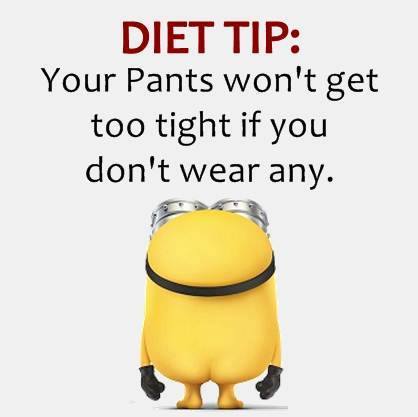
 yet for some reason it also seems to be one of the most painful -
apart from the man-cold that is.
yet for some reason it also seems to be one of the most painful -
apart from the man-cold that is. 

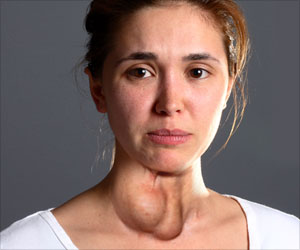
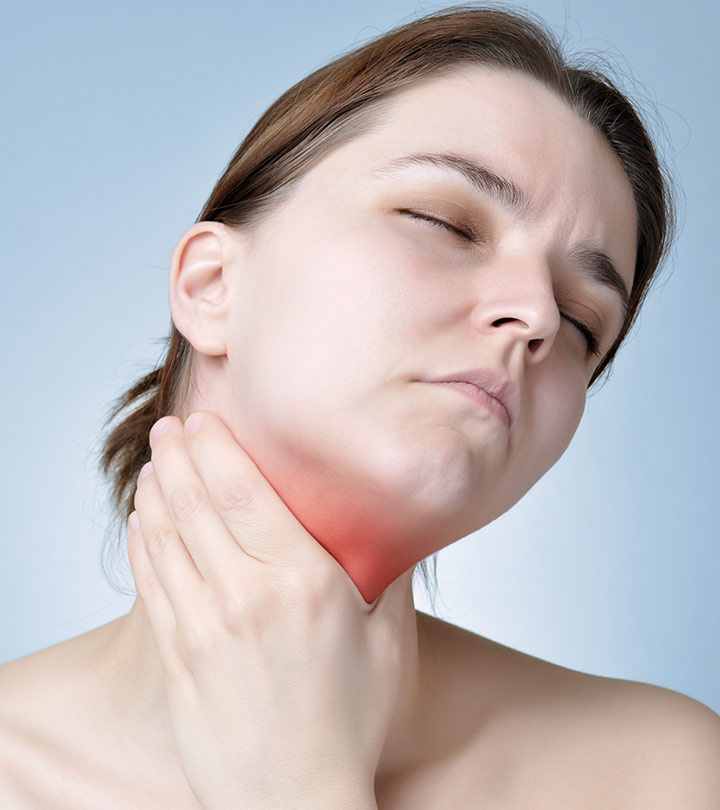
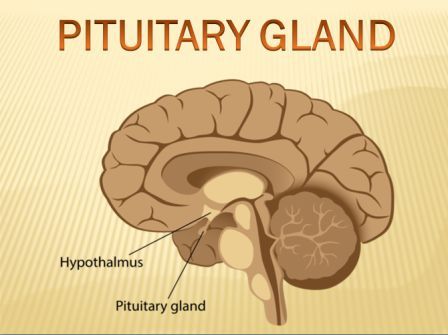 normal at birth. That's one reason why most states now require
newborn thyroid screening.
normal at birth. That's one reason why most states now require
newborn thyroid screening.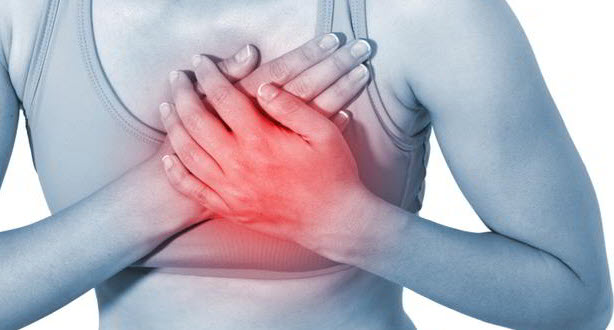
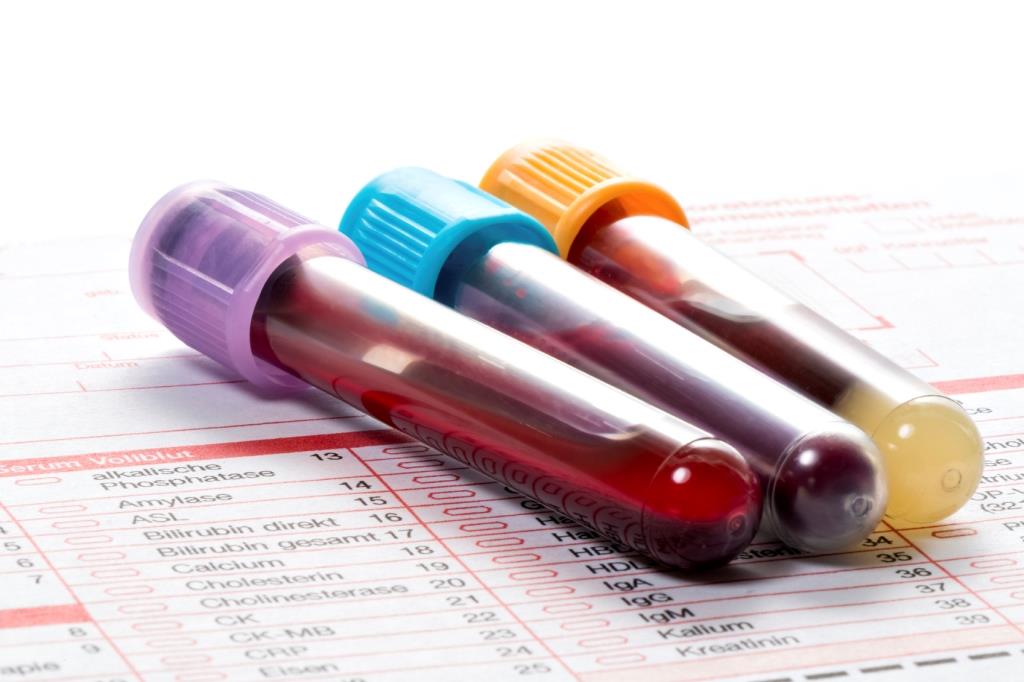
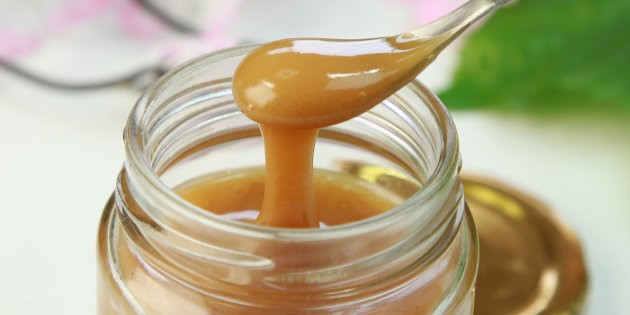






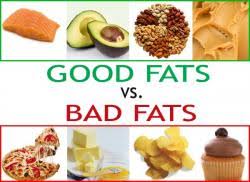
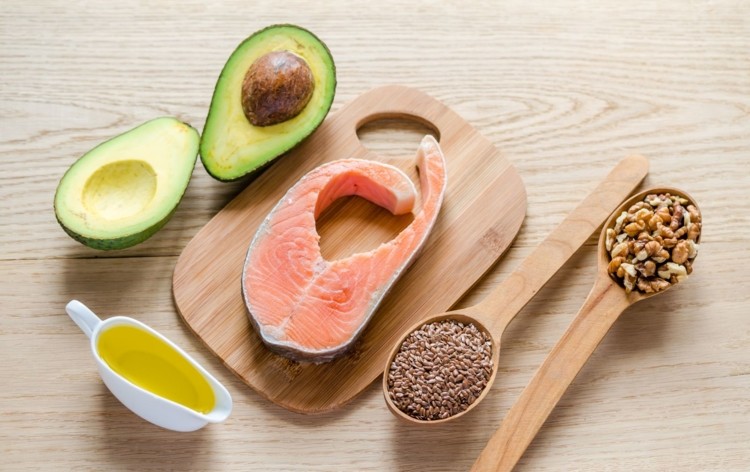 fatty acids improves blood cholesterol levels, which can decrease
your risk of heart disease. Research also shows that these fatty
acids may benefit insulin levels and blood sugar control, which can
be especially helpful if you have type 2 diabetes.
fatty acids improves blood cholesterol levels, which can decrease
your risk of heart disease. Research also shows that these fatty
acids may benefit insulin levels and blood sugar control, which can
be especially helpful if you have type 2 diabetes.